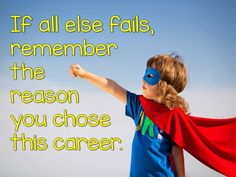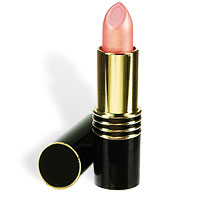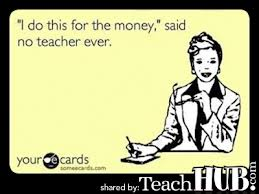 The teachers have spoken and it appears they are a little bit stressed.
The teachers have spoken and it appears they are a little bit stressed.
A few months ago, I asked teachers to share their feelings in an on-line poll. I received 172 responses from teachers, mostly from Canada, with a few from the US, and one solitary soul from South America.
They weren’t shy about sharing their feelings about the stress that teachers are under in today’s world. It was obvious to me that they all shared the common goal of wanting to give the very best they could to the children in their classrooms.
I have shared with you the numbers and the stats, but more importantly, I have shared many of the comments I received. Some of them were heart-warming, while others were heart-breaking.
Not every comment appears here but I tried to include examples from teachers of different grades, from different areas, with varying degrees of experience.
Thank you to everyone who took the time to complete the survey. Here’s who they were:
1. What grade level do you teach? (169 answers, 3 skips)
Early Elementary (K-3): 56 – 33%
Late Elementary (4-6): 30 – 18%
Junior High (7-9): 38 – 22%
High school (10-12): 31 – 18%
Other: 13 – 8% (includes: resource, learning centre, administration, combined class, substitute, music)
College/University: 1 – 1%
2. Where do you teach? (171 answers, 1 skip)
Canada: 156 – 95%
United States: 7 – 4%
South America: 1 – 1%
3. How many years have you been teaching? (147 answers, 25 skips)
10 – 15 years: 53 – 36%
5-10 years: 45 – 31%
15-20 years: 25 – 17%
20+ years:18 – 12%
3-5 years: 5 – 3%
0-2 years:1 – 1%

4. Organize in order of importance: what is your greatest source of stress right now? (172 answers, 0 skips)
Teachers were asked rank the following items in order from 1 – 7 in terms of their greatest source of stress.
|
1 |
2 |
3 |
4 |
5 |
6 |
7 |
| Inclusion/Differentiation |
31 (18.0%) |
43 (25.0%) |
38 (22.1%) |
40 (23.3%) |
11 (6.4%) |
2 (1.2%) |
3 (1.7%) |
| Negative Public Opinion |
27 (15.7%) |
29 (16.9%) |
29 (16.9%) |
32 (18.6%) |
39 (22.7%) |
8 (4.7%) |
1 (0.6%) |
| Classroom Size |
27 (15.7%) |
37 (21.5%) |
28 (16.3%) |
25 (14.5%) |
41 (23.8%) |
10 (5.8%) |
3 (1.7%) |
| Administration/Employer |
35 (20.3%) |
19 (11.0%) |
25 (14.5%) |
34 (19.8%) |
36 (20.9%) |
16 (9.3%) |
— |
| Personal/Family/Work Balance |
33 (19.2%) |
29 (16.9%) |
24 (14.0%) |
29 (16.9%) |
22 (12.8%) |
16 (9.3%) |
15 (8.7%) |
| Other |
6 (3.5%) |
13 (7.6%) |
11 (6.4%) |
5 (2.9%) |
11 (6.4%) |
87 (50.6%) |
29 (16.9%) |
| I don’t feel stressed |
13 (7.6%) |
2 (1.2%) |
17 (9.9%) |
7 (4.1%) |
7 (4.1%) |
24 (14.0%) |
97 (56.4%) |
(Results tabulated by Polldaddy.com)
5. Please elaborate on your response to the previous question. If you wrote in an answer different from those listed, please explain. (79 answers, 93 skips)
Inclusion/Differentiation
Inclusion happened and things were fine until all the supports were quietly removed, one by one. Educational Program Assistants were cut so deep that now they are reserved almost exclusively for “fight” or “flight” children. Learning centre teachers have become coordinators of EPAs and rarely work with students in-depth. Resource teachers are so overloaded that they are seeing more kids, less often. We need more in-classroom supports. (Canada, Early Elementary, 10-15 years)
It is simply impossible to meet the needs of every child in your class. We have children with special needs, children who are on individual program plans, behaviour problems, children with anxiety, along with the “regular” children. (South America, Early Elementary)
With less money going to pay for supports in the classroom, it is difficult to differentiate learning. For example, if you have a student who has Autism (all day) but only have an Educational Assistant for 30 min/day. (Canada, Early Elementary, 10-15 years)
Differentiation is nearly impossible in an everyday classroom. (Canada, Junior High, 10-15 years)
I have 28 students in Grade 5. They range from globally delayed (working at the grade 1 level) to autistic (prone to screaming fits daily) to gifted. Planning takes about 4 hours per day to ensure all lessons have been differentiated. (Canada, Late Elementary, 15-20 years)
With so little prep time, how am I supposed to look after/prepare/plan/respect all the individualised plan for all the students that have one? (Canada, Junior High)
Class sizes are too large and there is such a diverse group of learners that it feels impossible to meet the needs of all students on a daily basis. Children with special needs and leaning challenges suffer because of the large class sizes. (Canada, Early Elementary, 10-15 years)
 Negative Public Opinion
Negative Public Opinion
Every time we turn around, something negative is being discussed in the news and it is never accurate. The media presents it with a biased bent and the so-called experts are not experts. The union does not reply. (Canada, Late Elementary)
I find it demoralizing to hear all the negative opinions on teachers, snow days, summer vacation, etc. I feel like the public forgets that teachers also have families who count on us. Sometimes I feel like they expect my family to come second to their wants and desires for their children. (Canada, Junior High, 5-10 years)
There’s been a great deal of teacher-bashing due to a recent education report and several snow days. (Canada, High School, 15-20 years)
People speak so badly of teachers and disrespect the job we do. They feel it is babysitting and so easy anyone could do it. People also say we are just in it for the holidays. Teachers need to get the respect they deserve! (Canada, Late Elementary, 5-10)
Classroom Size
Too many students per class and too many with too many needs. Also, students are not held accountable and everybody passes. (Canada, Junior High, 20+ years)
I have 27 first graders in my class. I’m expected to differentiate and meet each of their needs. It’s hard. Too many kids, too many expectations that aren’t necessarily developmentally appropriate, and just one me. (USA, Early Elementary, 10-15 years)
My cap is 35 and I hit it yearly. (Canada, High School, 5-10 years)
We have to differentiate and at the same time control what is going on with 30 or more kids in the classroom. Kids are not the same as the where a long time ago. We teachers are supposed to be entertainers and if the kids are not having fun it is ok for them not to participate. (Canada, Junior High, 15-20 years)
Administration/Employer
If I were to try to capture the essence of the problems in education right now, I would say that having a government (hence my identification of employer) that feels it must respond to every social problem by downloading it to already over-worked teachers, who are then held accountable for the fact that the problems persist. Instead of expecting parents to parent, such as making good choices for their children instead of allowing kids to run the show, teachers have become the scapegoats. (Canada, Late Elementary, 10-15 years)
I am always watching over my shoulder as I am unsure of my administration. Admin is always right and our voice is not welcome, especially if we don’t agree. If we don’t agree, we are shut out. We have no voice! Just last week I said to my peers, why don’t they ask us what is working/not working in the classroom with new curriculums? (Canada, Early Elementary, 20+ years)
My main source of stress right is now is cell phones in the classroom. My administration believes that students should be allowed to have their cell phones with them at all times. This means I am constantly policing proper use. In middle school, this does not come naturally to students, so it is a constant battle that interrupts valuable learning time. (Canada, Junior High, 20+ years)
Administration will favour helicopter parents and change teacher’s marks accordingly. (Canada, High school, 20+ years)
The Department coming up with more paperwork all the time and using all of our in-service days to justify their existence to the public. (Canada, Junior High, 10-15 years)
School politics / favouritism/ ineffective leadership (Canada, High School, 10-15 years)
Personal/Family/Work Balance
Fortunately, I feel very little stress from classroom size, negative public opinion, and my employers. My greatest struggle is with balancing work and personal life; I always feel that I could be doing something better if only I had more time and energy. (Canada, High School, 5-10 years)
I often stay late at work and still end up taking things home. My family feels that I don’t give them enough time. I feel that I make a difference in children’s lives, but public opinion is very demoralizing. (Canada, Early Elementary, 10-15 years)
I feel as though I cannot possibly give my students AND my family my best. Somebody always gets the short end of the stick. I bring my students home in my head every night. Sometimes I am rocking my own babies to sleep while crying because I’m thinking about my students putting themselves and their siblings to bed alone. (Canada, Early Elementary, 3-5 years)
Other
How can you be an educator and not be stressed??????? (USA, Junior High, 20+ years)
For other, issues around resources and having to create your own materials/spend your own money to teach the curriculum in the way that is expected. (Canada, Early Elementary)
Administrative tasks i.e. paperwork, non-teaching related tasks. (Canada, Administration/Resource, 10-15 years)
Teaching has become very stressful. (Canada, Junior High, 20+ years)
Another stressful factor, which is not on the list, is social promotion. This feeds the stress and frustration I experience when differentiating lessons. (Canada, High School, 5-10 years)
Admins additional paperwork and no prep time. (Canada, Late Elementary, 3-5 years)
Paperwork!!! So much Paperwork!!!! And only being able to mark students on skills rather than efforts. (Canada, Music, 3-5 years)
Cutbacks and the lack of jobs are a major stressor right now. (Canada, Junior High, 5-10 years)
Paperwork – attendance , exam exemptions , documenting parent contact , adaptations; pseudo-parenting- responsibility, independence, career planning, social skills, gender sexuality issues, cyber bullying, mental health. (Canada, High School, 5-10)
Education is subject to an impossible standard: that all students will achieve standardized excellence. Anything short of this goal is failure, despite the reality that not every human being has the same academic capacity. Students should be held to improve relative to their own abilities. This is not how the system is measured, and thus, we can never met the impossible expectations placed on the system. The apparent lack of support from increasing numbers of parents/families amplifies this. (Canada, Late Elementary, 15-20 years)
Teachers are being passed the buck to raise children, educate them, treat mental health, solve behavior problems, manage their exercise and food intake, and most recently prevent them from joining ISIS ( yeah, couldn’t believe that one either). (Canada, Early Elementary, 5-10 years)
We are expected to be a jack of all trades. Teacher demands are increasing, curriculum is changing constantly, lack of funds mean we pour our own into our classroom, and we get little thanks from the parent. Parents seem to lack responsibility for student success…students have more rights and fewer consequences for inappropriate behaviour. (Canada, Early Elementary, 15-20 years)
I don’t feel stressed
There were a few teachers (8%) who picked “I don’t feel stressed” as their number one answer. We need to find these people and figure out how they did it. One of these respondents said:
I really don’t feel stressed – only at particular times of the year when there is time pressure. e.g. Report card writing and parent-teacher. (Canada, Early Elementary, 20+ years)
6. Do you feel you receive enough support from other professionals at your school, such as teaching assistants, school psychologists, administrators, resource and learning centre teachers, SLPs, guidance, others? (156 answers, 16 skips)
No: 101 – 65%
Yes: 55 – 35%
7. If you feel you are lacking in support, where do you need additional support in order to better meet the needs of your students? (98 answers, 74 skips)
(Note: The responses to this questions make it clear that teachers need more – more support from all of the other professionals in the school system. Teachers are frustrated that they can’t meet the wide and varied needs of the children in their classroom and they are looking for help. It is generally acknowledged that there just aren’t enough staff to provide the supports needed.)
The support we require as teachers must come from outside of the school through a recognition that we cannot be all things to all people. Realistic expectations of the role of the teacher, coupled with a stand on our behalf by those at the board and department level. (Canada, Late Elementary, 10-15 years)
More mental health support, more EPAs in schools, more learning centre teachers, resource, school psychologists, guidance….Teachers are doing a fine job teaching [and they could do more] if they could dedicate their days to teaching and not solving the world’s problems. (Canada, Early Elementary, 5-10 years)
Many of those people are so bogged down with paperwork that they have little to no time to actually do the job they’re supposed to be doing, which is working with students. (Canada, High School, 10-15 years)
The other professionals can only provide the amount of help they are assigned. They try to help everyone but there are not enough of them. We need many more TAs, more resource teachers and in most schools there are NO Guidance counsellors, which are desperately needed. (Canada, Early Elementary)
More planning time with other teachers. (Canada, Junior High, 5-10 years)
Someone needs to make administration accountable! Right now they are not proactive at all, the students and parents are running the school and there is no one to tell or no one that steps in to see how principals are doing. (Canada, Junior High, 10-15 years)
The school psychologists are so overworked that they hardly have a second to breathe. The admin are so busy putting out fires and pleasing parents that they have no time to be present in our rooms. (Canada, Early Elementary, 3-5 years)
More – there is not enough of this support so it is spread too thin. (Canada, Early Elementary, 10-15 years)
I believe that more supports need to be in place for students with weak reading, spelling, and comprehension skills. More supports need to be in place to assist a teacher when implementing individualized programs. I feel that the classroom teacher should be instrumental in providing expertise and challenge in the subject area; educational assistants or resource support should ALWAYS be available to students on individualized programs. (Canada, High School, 5-10 years)
Mental health issues. (Canada, Elementary 4-6, 10-15 years)
8. If your school is cancelled due to inclement weather, what do you think should be done? (150 answers, 22 skips)
1. Nothing should be done. Storm days are a normal part of the school experience: 105 – 70%
2. Other*: 30 – 20%
3. Teachers should prepare on-line lessons for students to complete while they are out of school: 5 – 3%
4. Teachers should prepare packages of storm lessons for students to complete at home: 4 – 3%
5. Teachers should report to school regardless of the weather, even when it is cancelled for students: 4 – 3%
6. School should never be cancelled. Parents should be given the choice to send their child to school or keep them home: 2 – 1%
*Some of the other responses are listed below:
This is a levelled question. High school students who are in semesters would benefit from online lessons or support. Elementary students are fine. They need to read more and stay off the computers. Go outside and play in the snow. (Canada, Early Elementary, 10-15 years)
I feel the need to say that I STRONGLY disagree with every listed option except “storm days are a normal part of the school experience”. (Canada, High School, 5-10 years)
I think teachers could make a reasonable effort to get to their work site; however, if the roads are dangerous then their judgment should be respected. (Canada, Early Elementary, 15-20 years)
After the second day, on-line instructions should be made available to students missing school for winter weather. I live in the South….our Snow Days are a local celebration. One play day is okay and then back to studies!!! (USA, Junior High, 20+ years)
My board remains open always. It is sometimes dangerous to travel, and yet the doors are open to students and the expectation is to get to work. (Canada, Music, 10-15 years)
Expecting all kids to work at home is not realistic. Not all homes and parents are equipped to sit down and do “schooling” with their children all day. (Canada, High School, 10-15 years)
The additional days have already been added to the school year in Nova Scotia. Because of the extension of the school year to 195 days, we already have 10 snow days built in, in addition to those that historically occurred. (Canada, Late Elementary, 10-15 years)
Teachers should make a reasonable attempt to get to their school; however, if the roads are too bad they can work from home. I live close to my school (5 mins) so I would love to be able to work in my classroom on storm days if the roads are clear enough to drive and the school is plowed out. (Canada, Early Elementary)
We are in Canada, for crying out loud! We have had snow days since the 1800’s…why are snow days such a big issue this year? (Canada, Junior High)
9. What would you like the general public to know about you as a teacher or teachers in general? (121 answers, 51 skips)
We work hard for your kids every day. The system is not designed to “meet the needs of all kids”, yet you have to trust we are doing our damn best to try and do this as best as we can. (Canada, High School, 10-15 years)
We are personally invested in your child. We care about them and truly want what’s best for them. (USA, Early Elementary, 10-15 years)
That if you think it is such an easy job to be a teacher and that we have it so easy that you should come into a classroom for a day or for an hour for that matter and see just how easy we have it!!! I love my job and love being a teacher and wouldn’t want to do anything else but it is not an easy job. (Canada, Early Elementary, 5-10 years)
Teachers are professionals, trained in pedagogy. Just as other professionals are trained in their area of expertise. (Canada, Late Elementary, 10-15 years)
That I live this job. I never leave it in the building. I am constantly thinking of/ working on how to improve my performance to help my students succeed. (Canada, Early Elementary, 5-10 years)
We care, we work hard, we appreciate support and do our best. (Canada, Junior High, 10-15 years)
In order to initiate change in the system, you must share your thoughts and opinions. You must not, however, assume you understand the system better than those who work within the system. Do not gripe about the school system to your children- allow them to form their own opinions, not simply echo yours. Teachers are not the only educators – parents and guardians are the first and often most influential educators in a child’s life. Lastly, please read to your little ones. They need it. (Canada, High School, 5-10 years)
I am a hard-working teacher who takes time and consideration to prepare lessons and assignments to help your child. Please support me in doing this. (Canada, High School, 10-15 years)
We can care about your child and at the same time stand up for our rights. (Canada, 20+ years)
I work a minimum of seventy-five hours a week. Four snow days a year does not make me lazy. Besides, I work on those days too. (Canada, High School, 10-15 years)
We love the kids, but we can’t be their parents or therapists. (Canada, Early Elementary, 5-10 years)
That most teachers (not all) spend a great deal of their own time and money to help ensure that your children get the best education possible! We really do love our students, as if they were our own! When we talk about our students to other people we refer to them as ‘my kids’. We love what we do and that is why we are teachers, we are not just in this profession for the summer vacation and snow days. That is a great misconception! Your support would go a long way in boosting our morale! (Canada, Junior High, 5-10 years)
I love my students. Beyond measure. And I want my own kids to have teachers who truly love them. (Canada, Early Elementary, 3-5 years)
I am exhausted. Ask any teacher from 20 years ago and they will tell you that the profession has changed drastically. 20 yrs ago there was no inclusion, no 4-year-olds in primary, and no technology and social media. Teachers weren’t competing with iPads and video games. You were allowed to relax and have fun in the classroom. Holiday parties weren’t banned and there was not as much, if any, of this ‘ data collection’ nonsense. Teachers could teach! They weren’t meeting’ed to death! (Canada, Early Elementary, 5-10 years)
Our hours are not 9 to 3. The majority of teachers spend a couple of hours both before and after school preparing lessons, gathering materials, meeting with other staff to discuss student needs, marking, clubs and the list goes on. (Canada, Late Elementary, 10-15 years)
 10. Do you feel teachers are fairly portrayed in the media? (146 answers, 26 skips)
10. Do you feel teachers are fairly portrayed in the media? (146 answers, 26 skips)
No: 129 – 88%
Yes: 17 – 12%
I am so tired of my heart breaking, it’s to the point that I am almost afraid to tell people I am a teacher. The generalized assumptions about our lives and jobs are so hurtful. And so inaccurate. For example, I have children too. I have to do something with them on PD days as well! So when people take to Facebook blasting us for taking time to collaborate I want to lose my mind. In what other job do employees NOT have time to meet and discuss their work with colleagues? We are often lumped together as a bunch of selfish over-paid, under-working lazy bums who put in time to hang out on ski hills and beaches on our vacations. See us for who we really are, not a negative stereotype. (Canada, High School, 10-15 years)
We need someone to follow us around for a week and report on that. The media doesn’t talk about all of the extra things we do, they just try to create controversy. They focus on strikes and snow days. Rarely do they report on “good news” stories. (Canada, Admin/Resource, 10-15 years)
Teachers fear repercussions for speaking out. Because of this, unless other informed members of society speak out, our voices are not heard.(Canada, Elementary, 10-15 years)
Teachers are often called lazy and accused of having it easy. The media seems to show us through a lens of the public opinion that we work till 3 and have weekends long holidays March Break and summers off. No one seems to realize that we don’t just show up and follow a script. We plan everything we do, correct students work , deal with parents, organize our student things, supervise students , plan field trips, wipe noses do zippers and laces, wipe tears and cuts, help foster independence, friendship and social skills, work evenings and weekends , read professional books to improve teaching , engage in learning activities and professor all development on our own time use our money to buy things to help provide essentials for our lessons attend curriculum nights, concerts, etc. and we only get paid for 195 days. We don’t even get paid holidays like most professionals do. I am just skimming the surface of all teachers do that the media forgets. (Canada, Early Elementary, 10-15 years)
We’re a very modest lot. We do incredible, amazing things EVERY SINGLE DAY. We’re performers, counselors, mediators, models, and teachers. We don’t always flaunt our accomplishments (we often don’t have time and don’t usually feel the need). However, I don’t feel that we are negatively portrayed in the news media (social media is a whole other ballgame, though). (Canada, High School, 5-10 years)
My answer is sometimes. Some teachers are treated like royalty and can do no wrong and are rewarded with wonderful media coverage; however, equally excellent educators are often perceived to be lesser because they are less popular with parents and administrators and these teachers find that almost everything they propose is met with forceful argument and parental resistance (even if it is the same information given to students by the better received staff). These teachers often receive negative press and are seen to be hard to work with and embarrassing to the school system. (USA, Junior High, 20+ years)
Teachers are the scapegoats for all that ails the public education system. The government pushes the idea that if students aren’t performing well on standardized tests, then it must be the teachers’ fault. The general public jumps on the bandwagon with the government. Instead of complaining about trivial matters like teachers getting storm days off it would be more constructive to talk about things like how poorly funded the education system is, how many students do not receive the support they need because there aren’t enough teachers, teaching assistants, guidance counselors, etc. in the system. How about a discussion on how difficult it is for teachers to teach a class in which a quarter of the class shows up high on drugs? Or a discussion on the impact higher poverty rates are having on students’ success in school? Or a discussion on how current discipline practices in schools are simply not working for those students who repeatedly act out and negatively impact upon the learning of others? The media could highlight the real problems with the system, as well as the successes of the system, but it chooses to focus on whatever it thinks will sell newspapers, gets viewers to tune in, etc. Unfortunately those things don’t help anyone at all. (Canada, High School, 10-15 years)
The media makes me feel as though I have it “so good” that I have no right to complain. How about the day I got slapped by a student? Or the day that a student accused me of hitting them? How about the day a parent wandered into my room full of students and proceeded to berate me? Or the time a parent said (within earshot) that I was worth nothing because I was pregnant and not going to be teaching for the year? We get treated like crap, and yet since we have summers off, we’re supposed to suck it up. (Canada, Early Elementary, 3-5 years)
We are SO much more than snow days and summers off! (Canada, Early Elementary, 5-10 years)
Teachers are not portrayed fairly because they are underrepresented. Teachers do not typically represent themselves in the media and our unions and boards do a poor job, since most of those individuals spend little time in today’s classrooms, or speaking with teacher and students. (Canada, Junior High, 5-10 years)
There are bad people in any profession. Teachers are no different. By and large teachers are professionals trying to make a difference for children. The media and “edu-experts” often latch onto incorrect or exaggerated issues to sell their product, and as the old saying goes, “If it bleeds, it leads”. Sensationalism draws viewers, which sells advertising minutes, and simplistic, short news bursts are easier than thoughtful and carefully considered opinions on problems (and positives) in education. (Canada, Late Elementary, 5-10 years)
Teachers are silenced by our collective agreements and our adherence to a professional code of conduct. We are not permitted to speak out or about our employer’s competencies if we wish to continue to teach. (Canada, High School, 5-10 years)
The media slants their stories to rile the general public. Look at all those days those teachers had off because of snow or the average teacher earns X amount and only works 10 months of the year with every weekend off, all holidays and 2 months in the summer. The media is very quick to criticize and blame, but rarely praises or apologizes when proven wrong or unfair. (Canada, Late Elementary, 20+ years)
Tired, and have frankly given up, having to justify my career choice. I still find it difficult to understand why people feel they can tell us how to do our jobs when they have never done our jobs. I am speaking about the public in general, and the self-declared experts who seek out and receive airplay. I must say at the same time that some teachers who are flippantly announcing their storm day plans which involve trips to the mall, etc. are not helping. (Canada, 20+ years)
We are one of the only professions where it is okay, even enjoyed to bash openly. I realize that this is probably the minority, but the others who support us rarely speak out. Media outlets (CBC ,CTV) in particular seem to have a hate on for teachers. Their inability to be creative journalists, means they report on the same things year after year. Snow days are one of these tired news stories. (Canada, Early Elementary, 15-20 years)
The “media” looks for sensationalism therefore what causes the greatest outcry (just or not) is what is followed and encouraged – the needs/best interests of the students are not considered. (Canada, Late Elementary, 20+ years)
I would love for any person who loves to complain about teachers to come spend a day with a teacher so they will have an informed opinion about what we do every day. We don’t just teach reading and writing, we wear many hats throughout the day. (Canada, Late Elementary, 5-10 years)
The Last Word
People will always have an opinion – positive or negative. As professionals, you just need to keep doing your best, every day. (Canada, High School, 10-15 years)

















 Have you ever found yourself singing along to the lyrics of a song and suddenly going, “Holy crap! Did he really say that?!”
Have you ever found yourself singing along to the lyrics of a song and suddenly going, “Holy crap! Did he really say that?!”




 As an elementary school teacher, I rarely assign homework.
As an elementary school teacher, I rarely assign homework.




